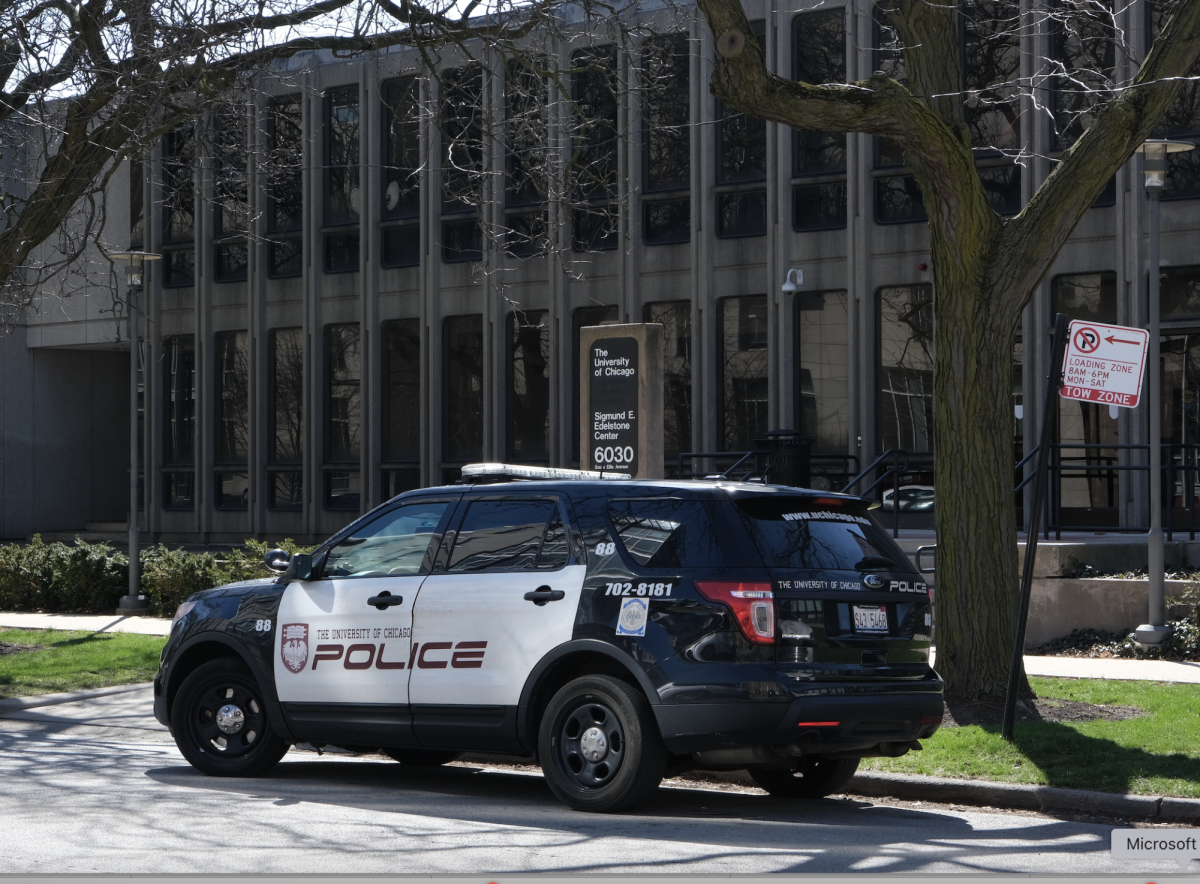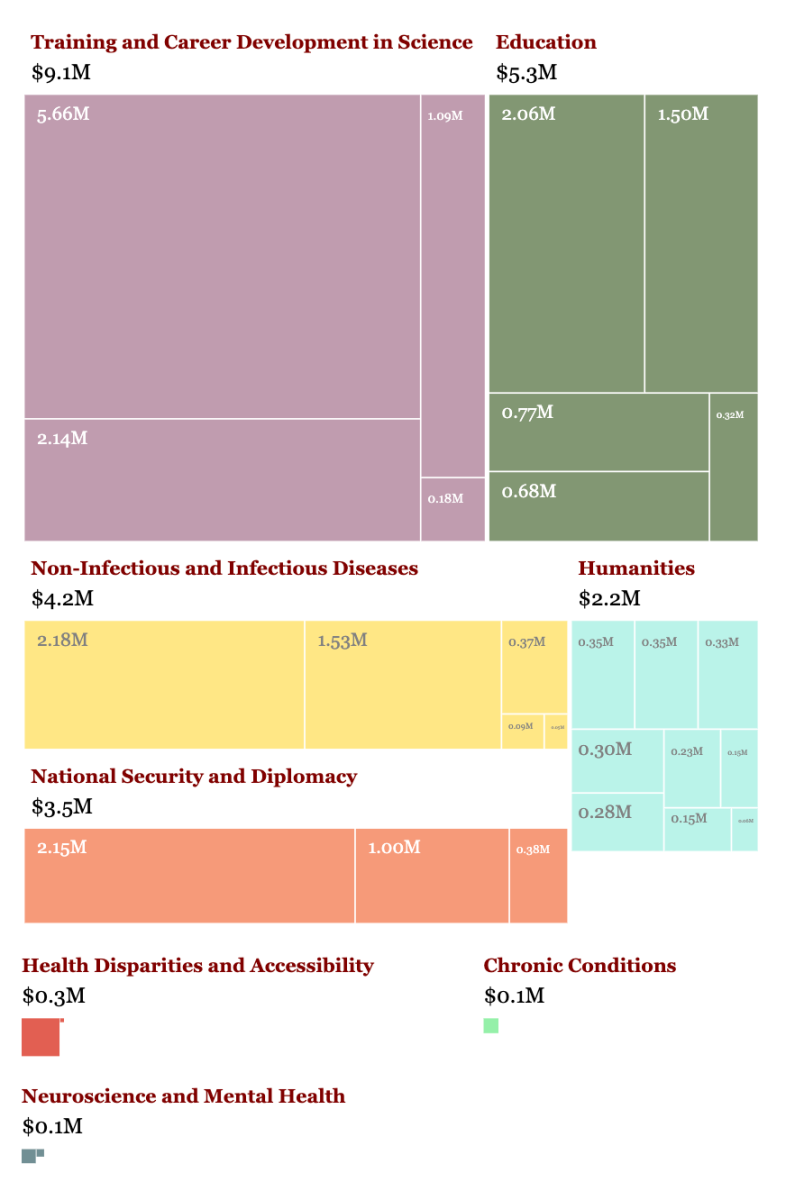
As students return to campus, last year’s quad protests against the war in Gaza, including a nine-day encampment, remain fresh in their minds.
On the second day of UChicago’s pro-Palestine encampment and the eighth day of Passover, students and community members gathered at separate celebrations of the same holiday: Mimouna in the encampment and Mimouna at UChicago Hillel. Mimouna is a traditional Maghrebi Jewish holiday that historically united Jews and their Muslim neighbors to celebrate the end of Passover.
This past spring, Jewish students interpreted and reinterpreted the holiday’s meaning as they sought spaces where religious practice and political beliefs could align—a search that, depending on the person, could seem more challenging or more promising than ever before.
While some participants felt that Mimouna at the encampment fostered a community of politically aligned Jews who had long been searching for spaces of belonging, other Jewish students believed it to be an appropriation of a tradition for political, not religious, purposes.
For some students, Mimouna represented a part of Jewish diasporic tradition which has been affected by the “destructive impacts that Zionism can have on Judaism,” according to Andrew Basta, A.B. ’24. For others, Mimouna represented a diasporic tradition that has been saved by the creation of the State of Israel—“Jews have long needed a homeland having been persecuted all around the world,” according to Justyn Zvi, A.B. ’26.
Pro-Palestine protesters launched the encampment on April 29, which was the seventh day of Passover. On April 29 and April 30, UChicago Jews for a Free Palestine provided Kosher Passover food to encampment participants observing the holiday. Basta, a member of the group who also attended Mimouna, explained that UChicago Jews for a Free Palestine was the main group organizing Jewish life in the encampment, with support from Jewish Voices for Peace Chicago, IfNotNow Chicago, and Tzedek Chicago.
UChicago Jews for a Free Palestine also celebrated the end of Passover by hosting Mimouna, which marks the transition back to eating leavened bread, which is forbidden during Passover. Participants gathered in a circle eating pita and dates while reading aloud educational materials from Jewish Voices for Peace about Middle East Jewry. According to Basta, two encampment participants who had grown up celebrating Mimouna, one of Ashkenazi and Moroccan Jewish descent, the other of Tunisian Jewish descent, organized the celebration.
Around the time of his bar mitzvah, Basta learned that the reform synagogue in which he grew up was donating tzedakah (charity) to the Jewish National Fund’s Plant a Tree in Israel Program, a nonprofit that supports environmental and infrastructure projects in the country, including raising money to plant trees across Israel. Basta and others have criticized the organization as supporting colonization efforts.
Learning about the program was a wake-up call for Basta. “I found that wasn’t a Judaism I wanted to be a part of,” and for a few years, “I didn’t really consider myself Jewish in any meaningful way,” Basta said.
His perspective changed when he joined a chapter of Jewish Voices for Peace during high school. “I found myself relatively quickly [joining] into the Palestine solidarity movement, where I could be part of my faith and feel like that was meaningful,” he said.
Celebrating Mimouna was an opportunity to include more Middle Eastern and North African Jewish traditions in the encampment, Basta added. His father’s side of the family are Egyptian Jews who left Egypt as refugees and immigrated to the U.S. after the 1967 Six-Day War broke out between Israel and a coalition of neighboring Arab states, including Egypt.
Although Basta did not grow up celebrating Mimouna, he felt that the holiday represented “the disruptive and wide-ranging impact… that Zionism has had on Jewish life.” At its core, Basta said, Mimouna is about Jews coming together with their Muslim neighbors in a celebration that “can only be born out of being in diaspora.”
To him, the holiday’s celebration was also hopeful, a “preparation for the joyous lives that we can rebuild once we win these political struggles and once we can establish a world where Jews and Muslims can live next to each other and celebrate our differences—but really [be] celebrated as equals,” Basta said.
“I think that was a huge part [of Mimouna]—envisioning this new future that we will be able to build without Zionism and then [live] with coexistence and unity,” Basta said.
Max Rosenblum, A.B. ’24, was excited to stop by the encampment’s Mimouna celebration, especially after studying abroad in Marrakesh on UChicago’s Middle Eastern Civilizations in Morocco program. Marrakesh’s Jewish quarter was the largest in the country until 1920. Throughout the 20th century, many Moroccan Jews migrated internally or moved to Israel, France, and Canada. An estimated 2,100 Jews currently live in Morocco.
Back in Marrakesh, Rosenblum visited the city’s last two active synagogues. He remembered listening to the congregations’ rabbis, now in their 80s, reminiscing about Mimouna celebrations of Marrakesh’s past.
Mimouna at the encampment was also meaningful to Rosenblum because it provided him with a space to pray and celebrate with politically like-minded Jews. There, he felt a sense of belonging amongst other progressive Jews, a larger community that is “infrastructurally lacking” at UChicago, he said.
Rosenblum is not particularly religious, but he grew up attending a conservative synagogue and then a reform synagogue and became a bar mitzvah, so he was familiar with many of the prayers at Ma’ariv, the evening prayer service that took place before the Mimouna celebration began.
At the encampment, Rosenblum recited prayers—the Shema, the Amidah, and the Mourner’s Kaddish—alongside the group. He felt that the Jewish values he had grown up with—like b’tzelem Elohim, that all people are created in God’s image and therefore equals, or tikkun olam, the pursuit of social justice—were reflected in the intent behind the collective ritual.
“I mean we were saying these prayers—at least for me—for peace, for civilians, for a ceasefire,” Rosenblum said.
In the end, he felt that the encampment’s Mimouna celebration represented Muslim-Jewish solidarity focused on uniting religious groups. “The holiday is more about religious groups than nationalities,” Rosenblum said.
Rosenblum had also brought along his friend and fellow Alpha Epsilon Pi fraternity brother, Justyn Zvi. Zvi, a Jew of Middle Eastern and North African descent, attended the encampment’s Mimouna before walking across the quad to attend Mimouna at UChicago Hillel later that night.
“I came to the encampment out of pure curiosity; I just wanted to witness it,” Zvi said. He knew that he and Rosenblum had some contrasting political views and was grateful Rosenblum had invited him, but this version of Mimouna did not “sit right” with him, he explained.
To Zvi, the encampment’s Mimouna “felt like a historical celebration turned into a political narrative.” He said that it felt like “an effort to say that ‘we’re not antisemitic,’” despite the fact that he still thought parts of the encampment were antisemitic, particularly the inclusion of chants like “Globalize the Intifada.”
Zvi does not have much family in the U.S.—most live in Israel or France. His father’s family immigrated to Tel Aviv to escape the Farhud, a 1941 Nazi-inspired pogrom that killed 150 to 180 Jews in Baghdad, Iraq. His mother’s family left Casablanca, Morocco for Lyon, France in the 1950s.
Zvi grew up with huge Mimouna celebrations, mostly with his mother’s family in Lyon. His grandmother would make the mofletta, a crepe-like food traditionally eaten for Mimouna, accompanied by labneh and za’atar.
At these celebrations, “you really feel at home with your people,” he said.
Middle Eastern Jews are the largest Jewish population in Israel, making up nearly 45 percent of the country’s population, but are a relatively small portion of diaspora Jews. Mimouna has become a popular celebration in Israel among Jews of Moroccan descent, as well as Jewish Israelis of many different origins, Zvi explained. But the purpose of Mimouna was not to celebrate the diaspora, he said.
Although Zvi agreed that Mimouna originally took place between Jews and their Muslim neighbors in a diasporic context, the holiday’s meaning was primarily religious for him. “It’s a celebration of bringing Jews together and celebrating the end of Passover and the end of the Exodus,” Zvi said. According to him, the end of Exodus was all about “achieving freedom… and I think freedom comes in peace above anything.”
Zvi left the encampment’s Mimouna around 9 p.m. to go to Hillel’s Mimouna. There, he felt more “at home” because he was surrounded by other Jews, which is the closest he feels to kin without having much family in the U.S, he said.
Hillel’s Mimouna celebrations have been historically led by students involved in the organization who want to share their traditions with the broader Jewish university community, according to Rabbi and Executive Director at UChicago Hillel Anna Levin Rosen.
This year, the Hillel staff prepared the celebration alongside a student of Moroccan descent whose grandmother shared traditional recipes for the mofletta. The estimated 40 Jewish students who stopped in throughout the night performed the Mimouna blessings, including a tradition of sprinkling guests with mint sprigs dipped in milk to symbolize luck and new beginnings, Rosen explained.
Mimouna is a reminder of the diversity of Jewish culture and also a reminder that Jewish culture is shaped by connections with neighbors and neighboring cultures, she said.
The holiday also falls at a liminal time on the Jewish calendar: the end of Passover marks the beginning of the counting of the Omer, a 49-day countdown until Shavuot, the holiday that celebrates God giving Moses and the Israelites the Torah as they wandered in the desert.
“Mimouna provides an additional touch-point in the middle of our story of wandering,” Rosen said.
Months later, as Jewish students anticipate this fall’s High Holidays, which include Rosh Hashanah and Yom Kippur, they are faced with a campus community increasingly divided along political lines. Jewish students who found religious and political meaning in the pro-Palestine encampment no longer have an established location to meet after police raided it on May 7. The wandering continues as uncertainty remains about how personal identity and political divides will influence religious celebration for this next set of holidays.










What did I do? / Oct 1, 2024 at 2:56 pm
I learned a new word: “Jewry.” Thought you meant “Jewelry” LOL 🙂
There’s a sense of ‘breaking, breaking every rule that I’ve ever made,’ as students find themselves navigating a complex intersection of politics and religious tradition on campus. For some, this moment feels like ‘sweet and sour,’ where they’re left asking, ‘did I let you down?’—whether that’s in their commitment to faith or political ideology. These spaces, where students seek to align their beliefs and practices, are ripe with tension, reminiscent ‘I was just tryna be myself / You go and make me someone else.’ In the face of division, there is still hope for unity, but as it stands, it’s like ‘I was just tryna work it out, yeah, but it’s too late.’